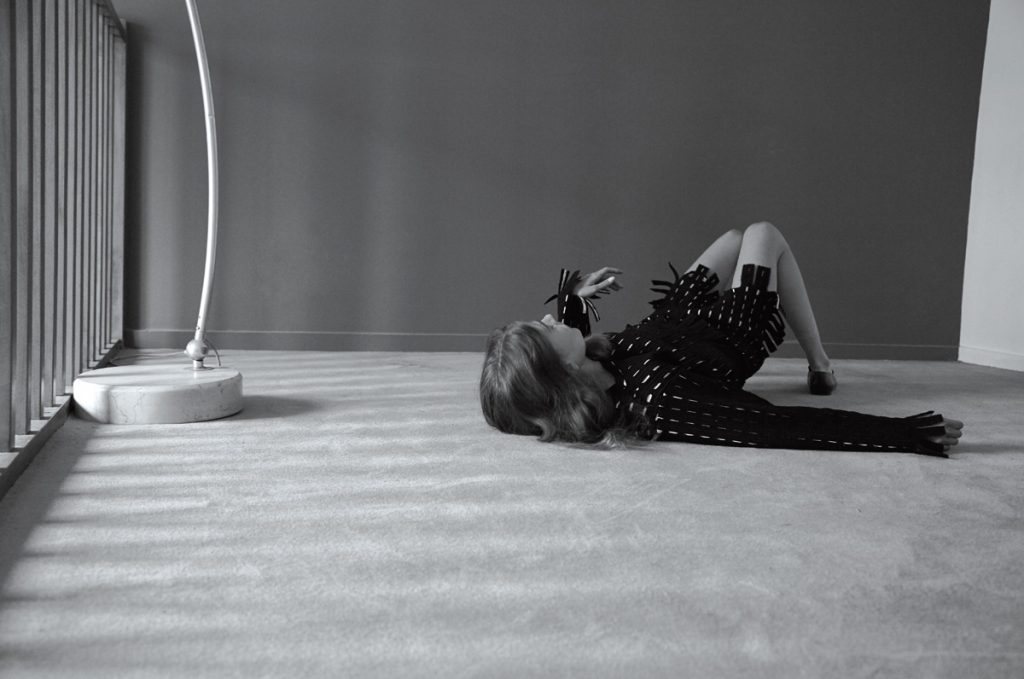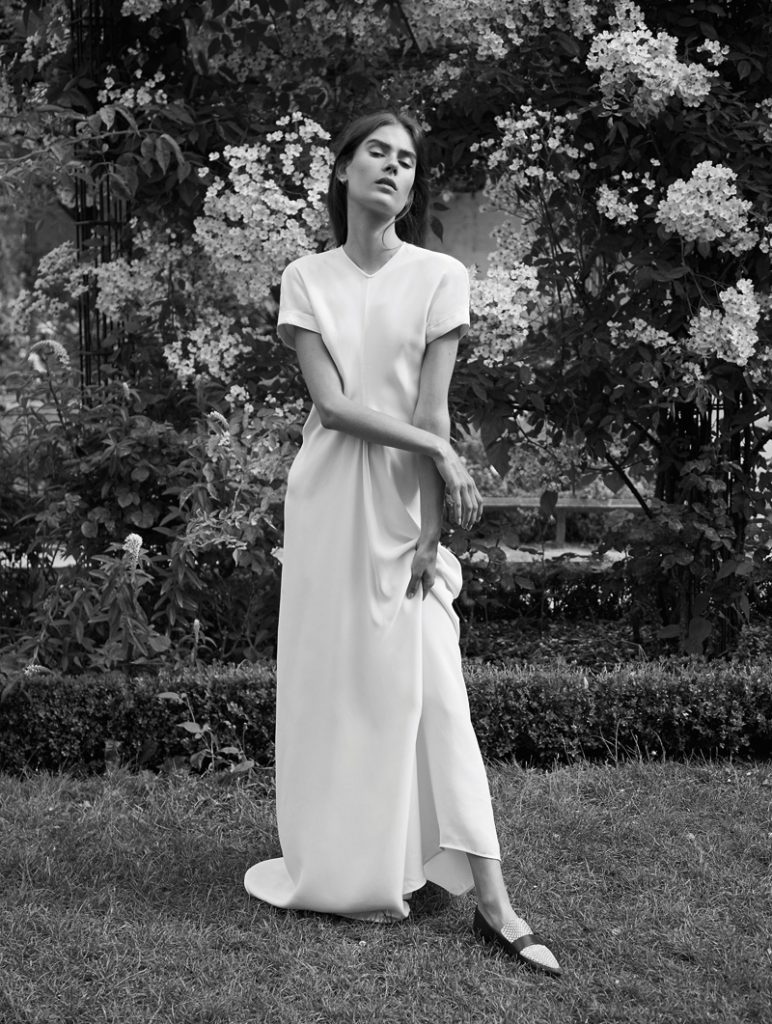In its last issue, MOJEH took an in-depth look at anxiety and its rise among modern-day women. But, it doesn’t have to affect your life forever – we turn towards the light at the end of the tunnel…
When one of the world’s most famous actresses admitted to the public that not only has she suffered from anxiety since she was a teen, but further, that she was not ashamed, she struck a gallant blow against the evil power of stigma that surrounds the mental illness. Your celebrity BFF Jennifer Lawrence may come across as one pretty fearless alpha female, but as it turns out, she’s not immune to the constant nervous feeling, sweating palms and rapidly increasing heart rate that studies show affects 18 percent of adults at some point in their lives. And while for Lawrence, it was a combination of therapy and medication that helped her deal with the stress of becoming a public figure, there has been a vast amount of research that has gone into the different ways to overcome the disorder.
From meditation, yoga and deep breathing techniques to exercise and supplements, experts the world over have dedicated their time to finding natural methods of help to cure the causes of anxiety. But, before we get into that, it’s time first to take a look at the hard stuff. With the various stigmas surrounding certain types of medication, you’d be forgiven if just thinking about taking anti-anxiety pills makes you feel even more anxious. Yet, for some, it’s the only effective way to fully alleviate those pressures. Merely Me is a published health author, who has experienced first-hand examples of how medication could cause life-altering changes for the better, when she came across the leader of a group she attended specifically for people who suffer from social anxiety. “He told us all the story of how he was once confined to his apartment out of fear,” she writes. “He relied upon his sister and other family members to bring him food and other essentials. In amazement, I asked the question everyone wanted to know – ‘How did you overcome this?’ This is when he confessed that therapy helped a lot, but medication helped even more. It was the combination of these two treatments that gave him his life back.”
But, for every person who benefits from medication to treat anxiety, there will be an equal number or more who see no benefit at all. As such, there are regular warnings on many antidepressants, saying that you should look out for mood changes, like an increase in anxiety, depression and fear – and the even greater risk of suicidal behaviour in children and teens. Also, taking into account side effects, the risk of dependence on some medications and especially the cost of both drugs and counselling sessions coupled together, it’s safe to say that for some, it might look like there’s no way out.
But don’t fear, as ever in-depth studies have started to show that this might not be the case, and that you don’t necessarily have to go down the medication route to clear your anxiety for good. According to Yash Saran, owner of Dubai’s new 136.1 yoga studio, anxiety can rear its ugly head through five different stages. From panic attacks and phobias to Obsessive Compulsive Disorder, Post-Traumatic Stress Disorder and Generalised Anxiety Disorder (or a general feeling of angst on a daily basis), effects can vary in their severity and there isn’t a one-size-fits-all method for cure. “One of the most effective ways I’ve found to deal with anxiety is the practice of Yoga Nidra,” he tells us. And, as such, celebrities including Emma Stone and Adele both attribute meditation with helping them overcome their fears, with the former constantly encouraging people to take deep breaths and live in the moment. “Yoga Nidra allows us to reach the most profound level of relaxation possible,” he continues. “It benefits the practitioner on all five levels of existence (physical, mental, emotional, psychological and spiritual) and helps induce a deep, meditative state by shifting concentration on the breath. It is both a form of meditation as well as a mind and body balancing therapy.” Many studies have proved that meditation can be indispensable for settling anxiety problems, as it can help calm a busy mind and release negative thoughts. “Continuous practice of yoga cultivates a mental sense of quietude and deep physical and emotional relaxation,” he tells us.
Similarly, according to the Anxiety Disorders Association of America, regular exercise can be just as effective for some in alleviating symptoms, for hours at a time. One such advocate of the ‘sweating- it-out method’ is actress Lena Dunham, who’s talked at length about how exercise has been a godsend in helping her treat her much-documented OCD. “To those struggling with anxiety, OCD or depression,” she once wrote in an Instagram post, “I know it’s mad annoying when people tell you to exercise, and it took me about 16 medicated years to listen. I’m glad I did.” And if you need more proof, a recent experiment by researchers at Princeton University discovered evidence that exercise does indeed alter brain activity to reduce stress and anxiety. As we all know, it releases feel-good endorphins into the body, increasing temperature for both a calming and uplifting effect. And, according to other studies, regular exercise can work just as well as medication for a number of sufferers. But, by a similar token, like all forms of therapy, the effect can vary. So, while a 30-minute jog five times a week may work wonders for one person, for another, it may not make a strong impact on long-term mental health. It’s all about finding what works for you.
Also, have you ever thought about freezing the stress out of you? Strange, we know, but bear with us. For those not in the know, Cryotherapy is renowned as a treatment that can help with a number of physical conditions, including muscle injuries, weight loss, inflammation and swelling. A lesser known fact, however, is that it doesn’t just help to alleviate physical conditions, but it prompts physiological changes in the body, too. “While cold as a treatment for anxiety isn’t something that would normally come to mind,” Benny Parihar, managing partner at CRYO tells us, “Cryotherapy is actually a scientifically-known method to reduce anxiety and even help depression.” Cryotherapy is the practice of exposing the body to extremely cold temperatures of -140C. “The body goes into shock mode, which prompts it to do everything it can in its power to stay warm,” he continues. “During this process, the body releases a rush of endorphins, which are otherwise known as the happiness hormone. These signal positive signs to the brain which results in a feeling of euphoria. In fact, medical studies have found that is doesn’t just impact a person’s mood while they’re undergoing the treatment – it can last for hours.” What’s more, doctors in Poland recently conducted a study to compare patients of depression who underwent Cryotherapy against those who didn’t. The results found a significant reduction in symptoms of anxiety for patients who had the treatment, and you can’t argue with science. So, next time you’re suffering from a major case of FOMO, maybe you should book yourself an appointment.
If you’re looking to counselling as a valid treatment method, you only have to look at Charles Linden, a former TV producer from the United Kingdom, who suffered from chronic anxiety for more than seven years (by his mid-20s, he was having up to 10 panic attacks a day and was treated with antipsychotic and antidepressant drugs) and subsequently developed his own method of therapy that treated anxiety, panic attacks, phobias and OCD. In turn, he published a book and a CD, and to this day, he’s helped more than 136,000 anxiety sufferers worldwide. His method outlines nine pillars or guiding mantras, which include advice to stop talking about, researching and holding on to memories of anxiety, and to start diverting the mind by getting busy. So, while there is no quick fix, simple methods such as the ‘dive reflex’ – taking a towel, soaking it in cold water and placing it on the back of your neck, and ‘cold apple’ – taking an apple from the fridge and eating it very slowly to slow your breathing – are just two tips that he promises can help divert a panic attack. Therapy worked for Whoopi Goldberg, who for years grappled with a specific form of anxiety called airline travel phobia. In 2011, she admitted that she had avoided flying for nearly 30 years after witnessing a mid-air collision from a hotel balcony, and would only travel cross-country via bus or train. Finally, the actress opted for a form of exposure therapy – an airline programme targeted at anxious flyers. “Some people are meant to fly,” she told CNN. “And I don’t knowifIammeanttofly,butIdoitnow.”
So, whether you choose to opt for the au naturel method or prefer to take pills to help your symptoms subside, there’s always light at the end of the tunnel. And while there are risks to taking medication to treat your symptoms, and you might not be the biggest gym bunny around, there’s also a risk in allowing anxiety to hold you hostage and rob you of enjoying life. Keep your chin up – there will be calm after the storm, you just need to keep fighting.






